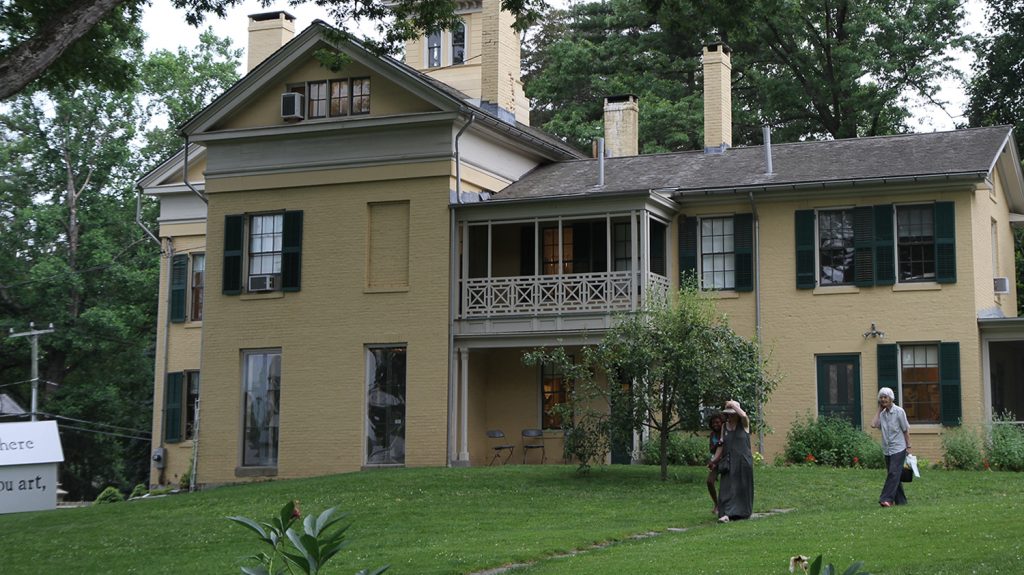The New England poet Emily Dickinson died at her home in Amherst (above), today in 1886, an event she had anticipated, meditated on, and written about all her life. Her final letter, written to her cousins, simply read, ‘Little Cousins, Called Back. Emily’. After she died and was carried through the fields to her grave, the words ‘Called Back’ were carved on her gravestone.
Because I could not stop for Death –
He kindly stopped for me –
The Carriage held but just Ourselves –
And Immortality.
Emily Dickinson
Claudio Monteverdi was baptised in Cremona today in 1567. He made an early impression with his musical gifts. By the time he was 16, he was getting madrigals and motets published in several cities, and he went on to become a leading composer of Renaissance and Baroque music, as well as writing the first proper opera, L’Orfeo. In the last 10 years of his life, he was ordained priest.
The papal bull Ad extirpanda (‘In uprooting’), which authorised the torture of heretics, was published today in 1252 by Pope ‘Innocent’ IV. One of the few limits placed on the torture was the instruction that it only be used once, but this was easily overcome by inquisitors who often regarded a whole series of torture sessions as one single operation. Those accused of heresy were held by the Church, but the men operating the rack were employed by the state, so the Church could keep its hands clean.
‘The ruler must force all the heretics whom he has in custody, provided he does so without killing them or breaking their arms or legs, as actual robbers and murderers of souls, and thieves of the sacraments of God and Christian faith, to confess their errors and accuse other heretics whom they know, and specify their motives, and those whom they have seduced, and those who have lodged them and defended them.’ Ad extirpanda
By contrast, also published today in 1891 was the encyclical of Pope Leo XIII, Rerum novarum (‘Revolutionary change’). It laid the foundations for Catholic social teaching, and its principle of a ‘preferential option for the poor’, echoing the Bible’s concern for the poor and powerless, for widows, orphans and prisoners, was important throughout the 20th century.
It is the feast of St Achillius of Larissa, one of the 318 delegates at the Council of Nicea in the year 325. The council was an epic showdown between orthodoxy on the one side, and Arianism on the other, and it produced a creed which with some edits and additions is now known and recited as the Nicene Creed. Achillius provided a notable (and, of course, definitive) proof of the orthodox teaching about Christ:
‘Taking up a stone, Achillius called to the Arians: “If Christ is a creature of God, as you say, tell oil to flow from this stone.” The heretics kept silent, amazed at this demand by St Achillius. Then the saint continued: “And if the Son of God is equal to the Father, as we believe, then let oil flow from this stone.” And oil flowed out, to the amazement of all.’
Today the church also celebrates Isidore the Labourer, patron saint of Madrid, and Hallvard Vebjørnsson, patron saint of Oslo. St Isidore was a poor farmworker, who cared for the poor and for animals, while St Hallvard attempted to rescue a pregnant woman accused of theft, during which she and he were killed by arrows.
Image: Dave Pape
